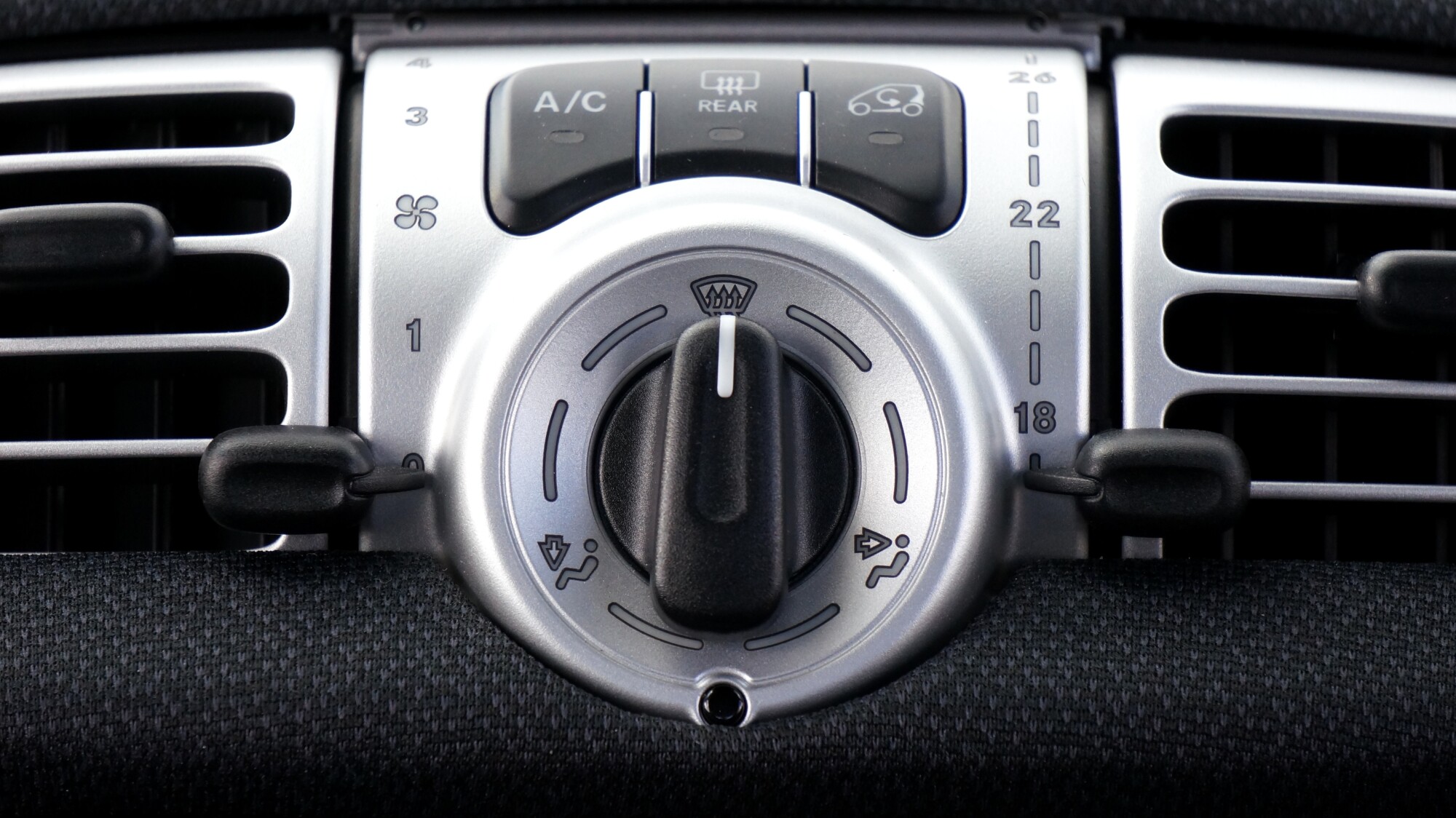
5 Reasons Why Your AC Car Blowing Hot Air. AC Car Blowing Hot Air can be an incredibly frustrating issue, especially on those scorching summer days when you need your vehicle’s air conditioning the most. Many drivers experience this problem at some point, and understanding its causes can help you tackle the issue head-on. In this article, we explore five common reasons why your car might be blowing hot air, providing detailed insights and practical advice to help you get back to enjoying a cool, comfortable ride.
AC Car Blowing Hot Air: Low Refrigerant Levels

One of the most frequent reasons for AC Car Blowing Hot Air is a low refrigerant level. Refrigerant is essential for the cooling process—it absorbs heat from the interior of your car and releases it outside. When the refrigerant is insufficient, due to either a slow leak or improper servicing, your AC system loses its ability to cool effectively.
A telltale sign of low refrigerant is when your AC system starts to emit warm air despite the settings being at their coldest. In many cases, you might also notice a hissing noise or even some oily residue near the AC components, which could indicate a leak. Repairing this issue isn’t as simple as just topping up the refrigerant; it’s crucial to locate and fix the leak first. Failing to do so means that even after a recharge, the system will continue to lose refrigerant over time, causing the problem to recur.
Routine maintenance is key in preventing low refrigerant levels. Regular checks can help detect any minor leaks early on, saving you from more extensive repairs later. When you notice the symptoms of AC Car Blowing Hot Air, it’s wise to consult a professional technician who can perform a comprehensive inspection and recharge the system if needed. This proactive approach not only restores comfort but also protects your vehicle’s overall AC system performance.
AC Car Blowing Hot Air: Compressor Issues
Another common culprit behind AC Car Blowing Hot Air is a malfunctioning compressor. The compressor is the heart of your car’s air conditioning system—it compresses the refrigerant and circulates it through the various components of the system. When the compressor starts to fail, it can’t maintain the proper pressure needed for the refrigerant to effectively absorb and dissipate heat. As a result, instead of cool air, you end up with warm or even hot air coming through your vents. (Read More: Best AC Car Freon Types for Maximum Cooling).
Drivers might notice other signs pointing to compressor issues, such as unusual noises like clunking or squealing sounds when the AC is engaged. Sometimes, the compressor may cycle on and off erratically, which can further hint at an underlying problem. In many cases, addressing the issue involves either repairing or replacing the compressor—a task that generally requires the expertise of a seasoned mechanic.
Regular inspections of the AC system can help catch compressor issues before they lead to a complete failure. While compressor repair might seem daunting, addressing it promptly can prevent additional stress on other components of your car’s cooling system. Understanding the link between compressor health and the overall performance of your AC system is crucial when faced with the dilemma of AC Car Blowing Hot Air.
AC Car Blowing Hot Air: Clogged Condenser and Blocked Radiator

A less obvious but equally impactful cause of AC Car Blowing Hot Air is a clogged condenser or a blocked radiator. The condenser’s job is to expel the heat that the refrigerant has absorbed from the car’s interior. Typically positioned at the front of your vehicle, the condenser relies on unobstructed airflow to perform efficiently. If it becomes clogged with dirt, debris, or even insect nests, its ability to cool the refrigerant diminishes significantly.
Similarly, a blocked radiator can impair the overall cooling efficiency of your vehicle. While the radiator primarily functions to cool the engine, its performance is closely linked to the condenser’s ability to operate effectively. When airflow is restricted, both systems suffer, and you may notice that your AC system starts to blow hot air as it struggles to maintain the proper operating temperatures. (Read More: Eco-Friendly Car Accessories to Make Your Ride Greener in 2024).
Keeping the front of your vehicle clean is a simple yet effective way to prevent this issue. Regularly cleaning the grille and checking the condenser for buildup can help maintain proper airflow. Additionally, scheduled maintenance checks often include an inspection of the cooling system, ensuring that both the condenser and radiator are free of blockages. This preventive measure can reduce the likelihood of encountering issues related to AC Car Blowing Hot Air and other heat-related engine problems.
AC Car Blowing Hot Air: Electrical or Sensor Malfunctions
Modern car air conditioning systems are highly dependent on a network of electrical components and sensors that monitor and regulate performance. When these sensors or the associated wiring malfunction, the system may receive incorrect signals, leading to improper operation. One common scenario is when a faulty sensor sends the wrong temperature reading, causing the system to believe that the interior is cooler than it actually is. As a result, the system may reduce its cooling output, leading to AC Car Blowing Hot Air.
Electrical issues can manifest in various ways. For instance, a blown fuse or a loose connection might cause intermittent failures in the system. In some cases, the problem can be as subtle as a misbehaving control module that fails to communicate effectively with the compressor and other components. Diagnosing these issues often requires specialized equipment, and a thorough inspection by an experienced technician is usually necessary.
Taking a proactive stance by checking the electrical components of your car’s AC system can prevent these malfunctions from escalating. Regular diagnostics, especially before the peak of summer, ensure that all sensors and wiring are functioning correctly. This routine can help mitigate the risk of encountering a sudden episode of AC Car Blowing Hot Air, thereby maintaining a consistently comfortable interior environment. (Read More: AC Car Freon: Signs Your Vehicle Needs a Recharge).
AC Car Blowing Hot Air: Cooling Fan and Belt Problems

Issues with the cooling fan and the belts that drive it are also common reasons for AC Car Blowing Hot Air. The cooling fan is responsible for drawing air through the condenser to help dissipate the absorbed heat. If the fan isn’t working efficiently—whether due to electrical problems, motor failure, or even physical damage—the condenser cannot cool the refrigerant properly, leading to an increase in temperature.
Additionally, the belts that drive the fan and other engine components must be in good condition. Over time, these belts can become worn, loose, or even slip, which in turn affects the performance of the cooling fan. A malfunctioning fan, paired with a compromised belt system, can significantly hamper the cooling process. This often results in the unpleasant experience of AC Car Blowing Hot Air, leaving you sweating in an already hot vehicle.
Regular maintenance of both the fan and the belts is essential for a smoothly running AC system. Visual inspections during routine service appointments can catch signs of wear and tear before they turn into major issues. Replacing worn belts or repairing a faulty fan in a timely manner can restore the cooling function of your AC system without the need for more extensive repairs. Being mindful of these components not only addresses the immediate problem but also contributes to the long-term reliability of your vehicle’s cooling system.
Daily driving can sometimes hide these issues until they become too severe to ignore. By staying on top of regular maintenance and paying attention to the subtle signs of trouble, you can significantly reduce the chances of encountering problems with AC Car Blowing Hot Air. Whether it’s a minor refrigerant leak, a failing compressor, or issues with airflow due to a clogged condenser, understanding these common causes empowers you to take appropriate action.
Maintaining your car’s air conditioning system is not just about comfort; it’s also about ensuring that all components are functioning optimally. Each element—from the refrigerant level and compressor health to the condition of the condenser, sensors, and cooling fan—plays a vital role in keeping your vehicle cool. With regular checks and prompt repairs, you can minimize disruptions and enjoy a consistently pleasant driving experience.
Taking the time to learn about these potential issues and how they interconnect makes it easier to identify early warning signs. This proactive approach helps in preventing small problems from escalating into larger, more costly repairs down the road. Moreover, being informed about the nuances of your car’s AC system allows you to communicate more effectively with service professionals, ensuring that any work performed is both accurate and efficient.
Regular maintenance routines, such as checking refrigerant levels, inspecting belts, and ensuring proper electrical connections, are simple steps that can save you a great deal of hassle. These measures not only address the discomfort of AC Car Blowing Hot Air but also help maintain the overall health of your vehicle. Each small effort contributes to a smoother, more reliable operation of your car’s air conditioning system.
Understanding the complexities behind why your AC might blow hot air allows you to make informed decisions about repairs and maintenance. Whether you’re dealing with mechanical wear or electrical malfunctions, having this knowledge puts you in a better position to keep your car’s interior cool and enjoyable, no matter how high the temperature climbs outside.




